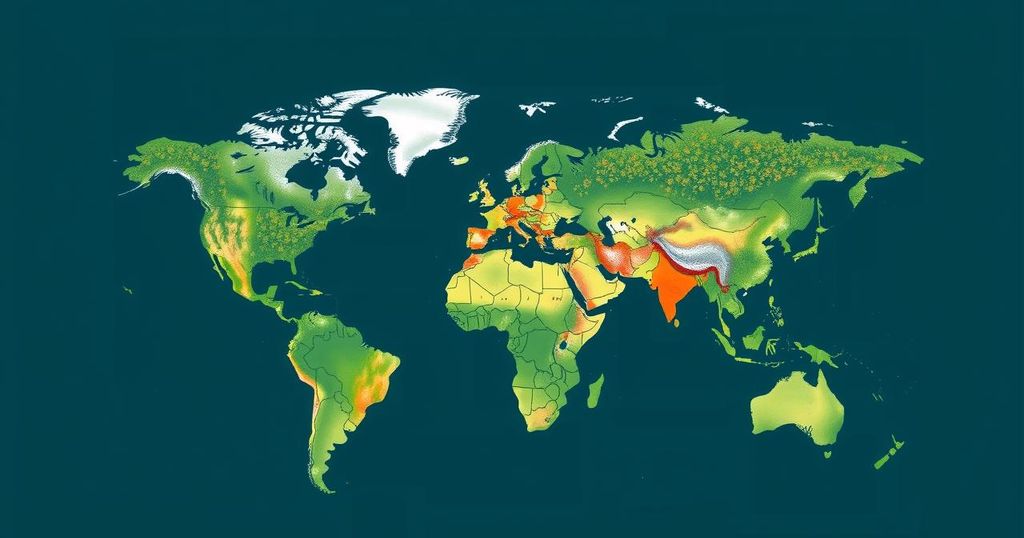Wealthier Nations Initiate Payment Initiatives for Climate Change Damages

Richer nations are beginning to financially compensate poorer nations for climate change damages, exemplified by Malawi’s response to Cyclone Freddy, where affected families received cash payments to help rebuild their lives. This initiative is part of a broader movement addressing the disproportionate impact climate change has on low-income countries, despite their minimal contributions to global emissions.
In the wake of Cyclone Freddy’s devastation in 2023, many communities in Malawi, including that of subsistence farmer Christopher Bingala, have faced severe repercussions from climate change. When floodwaters ravaged his home, Bingala was among the fortunate recipients of a direct cash payment aimed at compensating for climate-induced damages. Such payments are part of a growing initiative known as “loss and damage” compensation that seeks to assist low-income countries disproportionately affected by climate change despite their minimal contributions to global emissions.
The unprecedented scale of Cyclone Freddy’s impact is evident, with 650,000 individuals displaced in Malawi and extensive destruction of infrastructure. Bingala received around $750, allowing him to rebuild his home and start anew, a crucial lifeline for families lacking safety nets. However, concerns persist regarding the adequacy of the pledged compensation, currently amounting to approximately $720 million from wealthier nations, given the increasing intensity of climate-related disasters.
At the COP29 climate summit in Baku, participating countries are working to finalize the framework for this compensation fund, alongside broader climate finance efforts. Notably, Scottish funding has pioneered the initiative, with organizations like GiveDirectly facilitating cash distributions to affected families. The necessity for expanded support is emphasized by the dire circumstances faced by many low-income households, often uninsured and highly vulnerable during extreme weather events.
The plight of small-scale farmers, such as Bingala, illustrates the critical need for sustainable funding to address the escalating demands of climate-related damages. Developing nations, already burdened by significant debt, are calling for comprehensive funding strategies that go beyond immediate disaster recovery to include broader climate resilience measures. According to experts, funding requirements may surge to $250 billion annually by 2030 due to increasing disaster frequency and severity. Ultimately, failure to address these challenges may result in far-reaching humanitarian crises, affecting not only vulnerable populations but also the global community as a whole.
The article discusses the concept of “loss and damage” compensation, which seeks to provide financial assistance to lower-income countries suffering from the effects of climate change. This funding is particularly critical in regions like Malawi, which are experiencing intensified natural disasters despite having minimal contributions to global emissions. The push for a dedicated fund to address these issues marks a significant development in international climate policy, especially considering the severe financial burdens these disasters impose on developing nations.
The introduction of loss and damage compensation represents a pivotal step towards addressing the injustices faced by low-income countries adversely affected by climate change. While initial funding has been pledged, the urgency for a sustainable financial framework remains paramount as the frequency and severity of climate-related disasters continue to escalate. Addressing these issues not only serves humanitarian interests but also reflects a collective responsibility to mitigate future environmental crises that transcend national borders.
Original Source: www.wuwm.com






